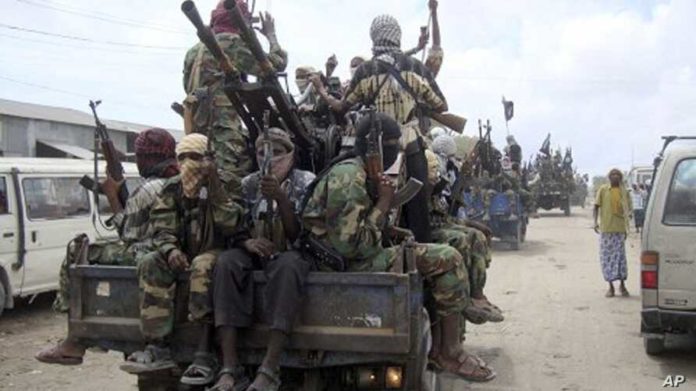Ahmed Adel
Somali Prime Minister Mohamed Hussein Roble is playing an important role in trying to get out of the country’s current crisis by absorbing the anger of the opposition and reconciling the conflicting parties.
The scene in Somalia was complicated after President Mohamed Abdullahi Mohamed Farmaajo, whose term was supposed to end on February 8, 2021, held onto power and caused violent incidents after the Council of Presidential Candidates was targeted on February 19.
3 main components
The political component in the country is based on three main branches: the federal government, the states, and the Council of Presidential Candidates.
But those three components are actually two main camps, the first comprising the actual power, namely the presidency, the government and three loyal states, while the second includes the Council of Presidential Candidates and two opposition states, Jubaland and Puntland, which forms the opposition.
The Council of Presidential Candidates includes 14 candidates from among the most prominent members of the country’s political elite. It was established on November 20, 2020, to prevent Farmaajo from “hijacking power.”
The main disagreement between the authority and the opposition in the country is the failure to reach a final consensus on holding the elections and defining fair and transparent consensus mechanisms to implement a political agreement on holding elections between Farmaajo and the heads of the regional states on September 17, 2020 in Mogadishu.
The agreement laid down major foundations for the elections, especially holding them through indirect suffrage, as the delegates choose the representatives of the parliament, who in turn choose the president of the country. But the agreement did not put an end to disputes over representation of states in parliament and other issues.
The contentious issues between the two camps include the absence of guarantees about the integrity of the elections, as the opposition accuses the president’s camp of planting security elements and a number of his supporters and government employees in the election committees, making them lose their impartiality and independence.
The second controversial file is the issue of Gedo, which is an administrative region located in southern Somalia and administratively affiliated with the state of Jubaland, which opposes Farmaajo.
Elections are scheduled to take place in this region to maintain 16 parliamentary seats, and Farmaajo adheres to managing the elections around these seats without any legal basis, while the state of Jubaland rejects Farmaajo’s interference in managing the elections for the parliamentary seats allocated to the state.
Farmaajo adheres to his position on the Gedo seats, deploying the federal government forces, because these seats are crucial in voting to choose the next president of the country.
The third point of contention is the issue of election management in Somaliland, an autonomous region in the north of the country that has been seeking secession for more than three decades, which Somalia rejects altogether.
Somaliland rejects the policy of imposing a fait accompli and does not accept any attempts by Mogadishu to impose its political will in its regions. The politicians of this region are divided between supporters of secession and adherents to unity, so the northern region of Somalia is represented in the federal government by Upper House Speaker Abdi Hashi Abdullahi and Deputy Prime Minister Mahdi Mohammed Gulaid Khadar.
There is a disagreement between the two men over who will run the elections in Somaliland for 56 representative seats, who will represent the region in the Somali parliament.
Speaker Abdullahi, who is supported by the opposition, insists that he has the right to appoint a committee to administer the elections, but Khadar, who is backed by the authorities, believes that the government has the authority to appoint the committee.
Reasons to trust Roble
The opposition camp trusts Prime Minister Roble, because he apologized to the presidential candidates after the recent violence and pledged to allow the peaceful opposition demonstrations condemning Farmaajo to continue, and he even offered to secure government forces to protect them.
Roble is not a candidate in the upcoming presidential election, which drives the various parties to trust in him. He also has a legal status in the Somali constitution, as he is entrusted with conducting the work of the government and managing the transitional phase. This constitutional legitimacy is recognized by the opposition, while Farmaajo does not have any legal status.
As for the main reasons for trust in Roble, they are represented in the international pressure exerted on him to play a leading role in managing the transitional phase and to sit with everyone and reach understandings that pave the way for acceptance of the results of the electoral process, whether the legislative or presidential elections.
However, the biggest challenge facing the opposition’s confidence in Roble, who can be described as “cautious”, is the extent to which he has been able to use it to bring points of view between the parties to the political scene, build common ground and rebuild trust, in addition to preventing Farmaajo from using the common ground and any understandings about the electoral process in his propaganda campaign as if he had achieved it.








































admin in: How the Muslim Brotherhood betrayed Saudi Arabia?
Great article with insight ...
https://www.viagrapascherfr.com/achat-sildenafil-pfizer-tarif/ in: Cross-region cooperation between anti-terrorism agencies needed
Hello there, just became aware of your blog through Google, and found ...